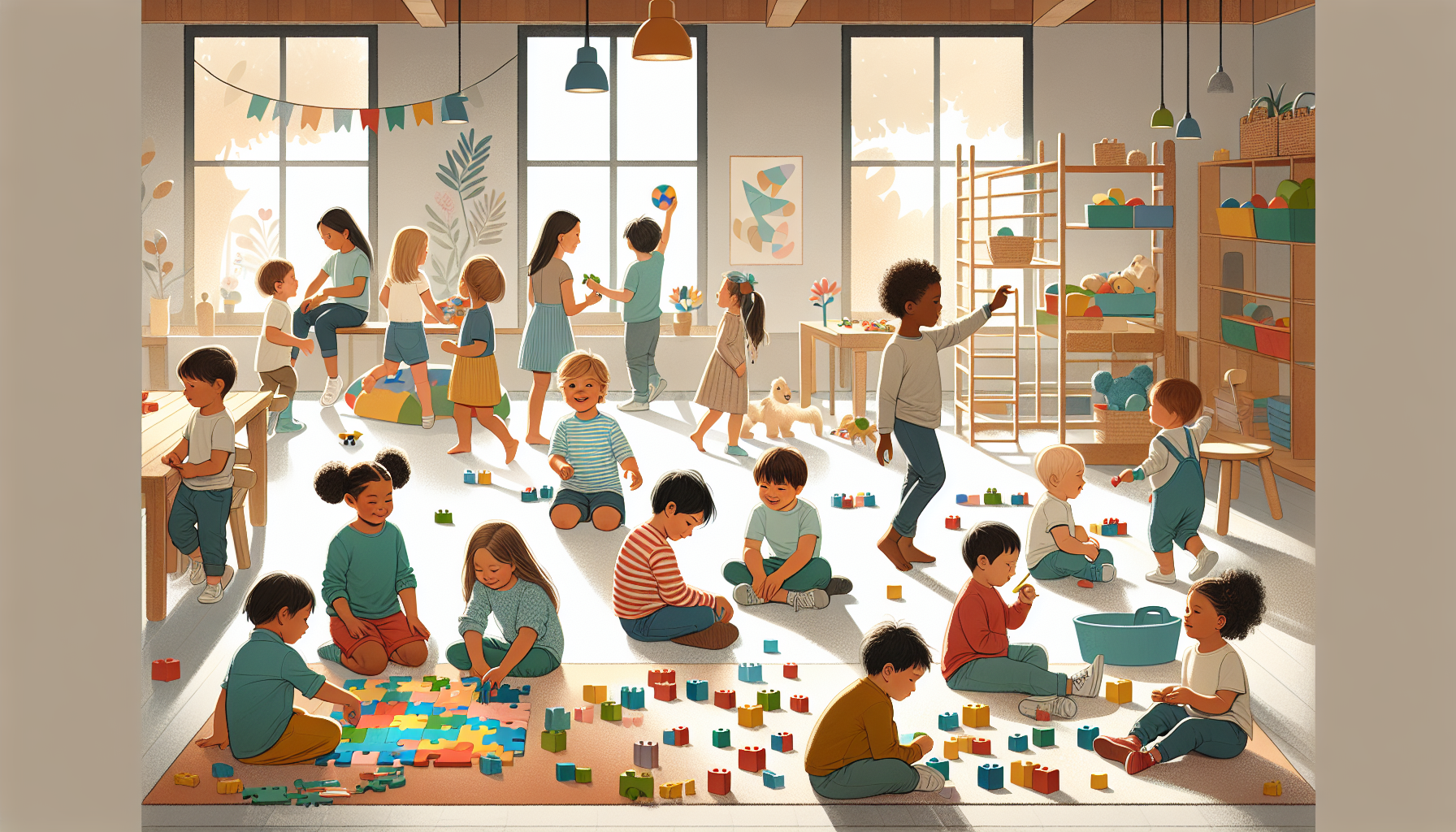“`html
The Importance of Play in Early Childhood
Introduction
Play is often seen as just a fun activity for children, but it is so much more! For children, play is the cornerstone of early education and child development. It isn’t just a way to pass the time—it’s how kids learn, grow, and connect with the world around them. From building social skills to enhancing cognitive abilities, play is an essential part of every child’s life.
As parents, it’s vital to understand the impact play has on your child’s physical, emotional, and mental health. By encouraging and participating in your child’s playtime, you can strengthen your bond, improve communication, and support their development in meaningful ways.
Why Play Matters in Early Childhood
Play is far more than just entertainment—it’s a critical aspect of a child’s growth. Research shows that play contributes to healthy brain development, encourages creative problem-solving, and improves self-regulation skills. Let’s dive into the different ways play supports child development.
1. Cognitive Development
Through play, children develop essential cognitive skills like problem-solving, memory, and decision-making. For example, when a toddler stacks blocks, they’re learning about balance, spatial reasoning, and cause-and-effect relationships. Educational games and pretend play also stimulate creativity and allow children to explore concepts in a safe, engaging environment.
2. Social and Emotional Skills
Play provides children with the opportunity to interact with others, teaching them how to share, cooperate, and resolve conflicts. Role-playing games, in particular, allow kids to experience different perspectives and develop empathy. These social interactions are crucial for building emotional intelligence, a key component of lifelong success.
3. Physical Development
Physical play, such as running, climbing, or dancing, helps kids develop motor skills, coordination, and overall physical health. Activities like these not only strengthen their bodies but also boost their confidence as they master new abilities. Regular physical play is also linked to stress reduction and better sleep, both of which are essential for growing children.
4. Psychological Benefits
Play fulfills fundamental psychological needs such as autonomy, competence, and connection. According to principles of cognitive-behavioral therapy (CBT), these needs are vital for a child’s well-being. For instance:
- Autonomy: Free play allows children to make choices and explore their independence.
- Competence: Mastering new skills during play boosts self-esteem and confidence.
- Connection: Playing with parents or peers strengthens relationships and fosters a sense of belonging.
Practical Tips for Parents to Encourage Play
Now that we understand why play is so important, let’s explore some practical ways to encourage and support your child’s playtime. Here are a few simple tips:
1. Create a Safe and Stimulating Environment
Designate a play area in your home where your child can explore, create, and have fun. Make sure it’s safe, with age-appropriate toys and materials that encourage imagination, such as building blocks, art supplies, or costumes for pretend play.
2. Set Aside Time for Unstructured Play
While structured activities like sports or music lessons are beneficial, it’s equally important to give your child time for unstructured play. This allows them to take the lead, make decisions, and express themselves freely.
3. Join in the Fun
Playing with your child is one of the best ways to strengthen your bond and improve communication. Whether it’s a board game, a tea party, or a game of tag, your involvement shows them that you value and enjoy spending time together.
4. Limit Screen Time
While technology has its place, too much screen time can hinder a child’s development. Encourage hands-on activities and face-to-face interactions instead of relying on digital entertainment.
5. Encourage Outdoor Play
Fresh air and outdoor play are great for both physical and mental health. Take your child to a park, playground, or even your backyard to explore nature and enjoy physical activity.
Conclusion
Play is a powerful tool for nurturing your child’s growth and development. From enhancing cognitive abilities to building social-emotional skills, play lays the foundation for a happy, healthy, and well-rounded individual. As parents, fostering a love for play not only benefits your child but also strengthens the bond you share with them.
Remember, the best way to support your child’s development is by being present, encouraging their curiosity, and creating opportunities for meaningful play. By doing so, you’re not just helping them learn—you’re giving them the tools to thrive in life.
For more insights on child development and parenting tips, visit our Child Mind website.
“`

